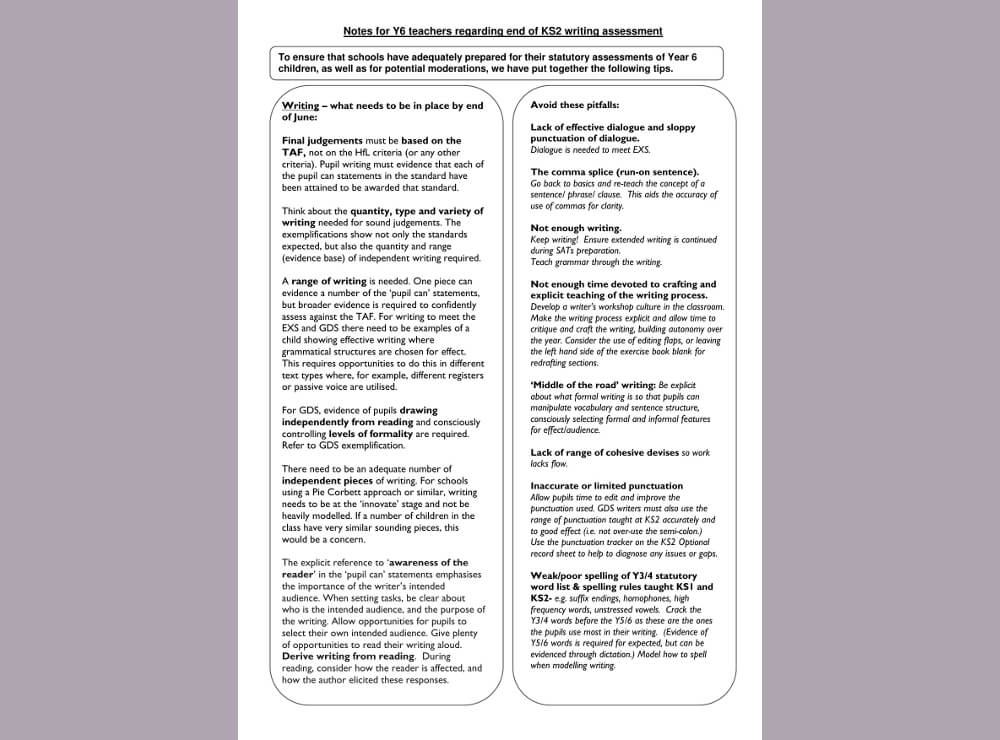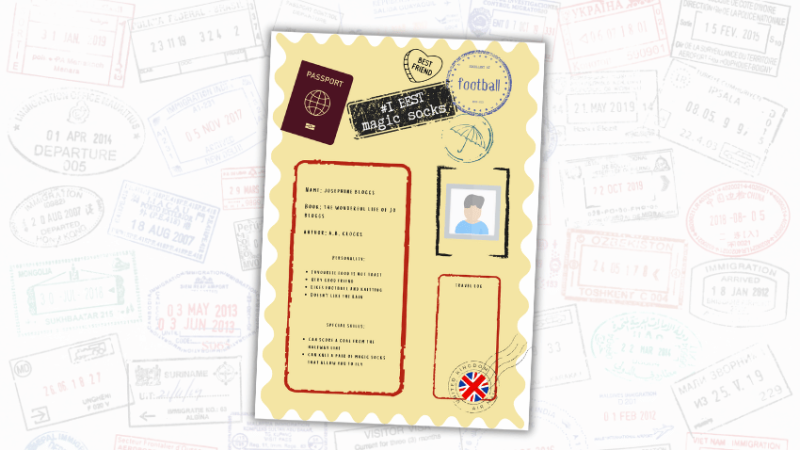Moderating writing – how to make sure you’re ready

Grab your sticky notes and take a deep breath: here’s how to make the process work for you

- by Adam Levick
- Secondary teacher, transition lead and former primary teacher

Writing moderation is something on which we all have an opinion.
Some of us relish the opportunity to be able to show off our pupils’ amazing work, while others dread the experience of having to ‘prove’ that a child has managed to cross the threshold of the expected standard.
After going through the process, I can confidently say that it was useful and (dare I say) enjoyable.
It was a great form of CPD, and allowed for meaningful professional discussion and advice on the next steps to improve my teaching.
The key message is simple: know your class’ writing, and know it well. Have the confidence in your ability as a teacher to know where each child is, and know what evidence is available to justify that.
This knowledge of the work is the springboard for everything else when it comes to preparing for moderation.
To make the process as painless as possible, make sure you have done the organisational prep work needed.
For me, that meant checklists colour-coordinated with sticky labels across a class set of writing books.
However, any system that showcases where the evidence is and how children have met the standards is a winner. Find what works for you.
On top of this, your preparation truly begins at the point of your medium- and long-term plans.
Having a broad range of genres, audiences and purposes for writing is essential, making a note of what knowledge you expect the children to gain where you can.
Let’s take a closer look at some of these tips, to help you feel ready should you get that writing moderation call.
Year 6 writing moderation checklist
Don’t panic
Getting the selection email can be daunting. I remember the sense of dread I intially experienced when my headteacher came and told me, “It’s a yes to moderation”.
However, there is nobody in the world better suited to talking through your children’s work than you. Moderators aren’t there to catch you out.
Most are teachers and just want to ensure that pupils are getting the grades they deserve.
Take a breath, and pause. If you’re prepared and armed with a strong knowledge of your class’ writing, you will be fine!
Actually teach the children
Being prepared for writing moderation begins on day one. Your teaching sequences will have a huge impact on the children’s work across the year.
The final pieces you’ll take to moderation all stem from your lessons.
Independent writing is a skill that is honed through explicit teaching. I have made the mistake of letting the children write independently far too early, only to be met with blank stares and a chorus of ‘ummmm’.
To be prepared for moderation, you need to put the groundwork in first. Let your class see the writing process and the way a writer thinks.
Model writing in front of them, explaining your reasons behind your language or grammatical choices.
Shared writes allow you to collate your class’ ideas with you as a guiding voice. Take their suggestions on board and tweak where necessary to show them how they can turn ideas into great sentences.
Actually teaching the children how to think like a writer is the best way to ensure their independent writing will be ready for moderation.
If you’re not sure where to start, try free podcasts like Author In Your Classroom to bring real-life writers directly to your pupils.
Presenting evidence
Writing will be moderated against the teacher assessment framework (TAF), so make sure this is the basis for your prep.
Your best tool to help present evidence is a checklist of the TAF statements, mapped onto different examples of the children’s writing.
Finding the right checklist is key. Although the moderator will use a list filled with broad and generalised statements, using one that breaks each statement down will make your life easier.
For example, instead of ticking off ‘I can build cohesion within and across paragraphs’, use a list that gives each cohesive device its own tickable box (‘for example’, ‘in conclusion’, ‘and’, ‘but’, etc).
This allows you to pinpoint individual or whole-class weaknesses.
I’m a firm believer that overpreparation is the key to success. I also swear allegiance to anything colour-coded.
For me, that meant developing my own system of sticky notes to mark each piece of work for different evidence markers.
For instance, I could easily spot that pink meant ‘using a dictionary to spell uncommon or more ambitious words’.
Having these visual prompts sticking out of the top of the books meant I could turn to that piece of work immediately and give the moderator the evidence they needed.
Moderate before moderation
Moderation can feel like a lonely process, especially if you teach in a small school. However, a crucial part of feeling prepared is collaboration.
To feel at ease, moderate some writing with others before the big day looms.
If you’re part of a MAT, ask about cross-school moderation. That way, people who have taught different writing units will be able to look over your work and give you advice and reassurance where necessary.
Sitting down with your headteacher to go through your judgements and evidence is also a great help.
Chances are, they will have seen the children’s work in previous years and will be able to give you a positive narrative about how much progress they’ve made.
The key takeaway is always to ask for the help and support you need. I was lucky enough to moderate with colleagues in school and across the MAT, with my headteacher, and with friends and colleagues through Twitter.
Not only did it help me understand where to ensure I had extra evidence, but it also boosted my confidence hugely.
You got this!
Adam Levick is a mixed Year 5/6 teacher in a small school in York. He is also the subject leader for English, PSHE and computing. Follow him on Twitter @_MrLevick







